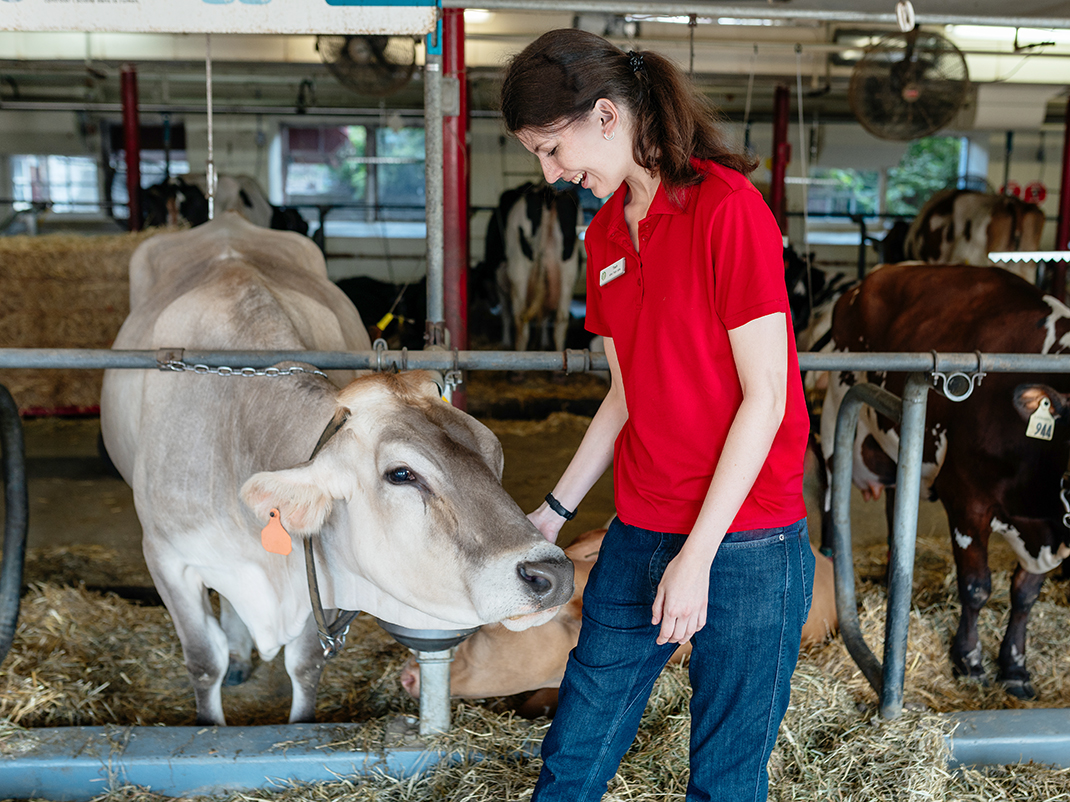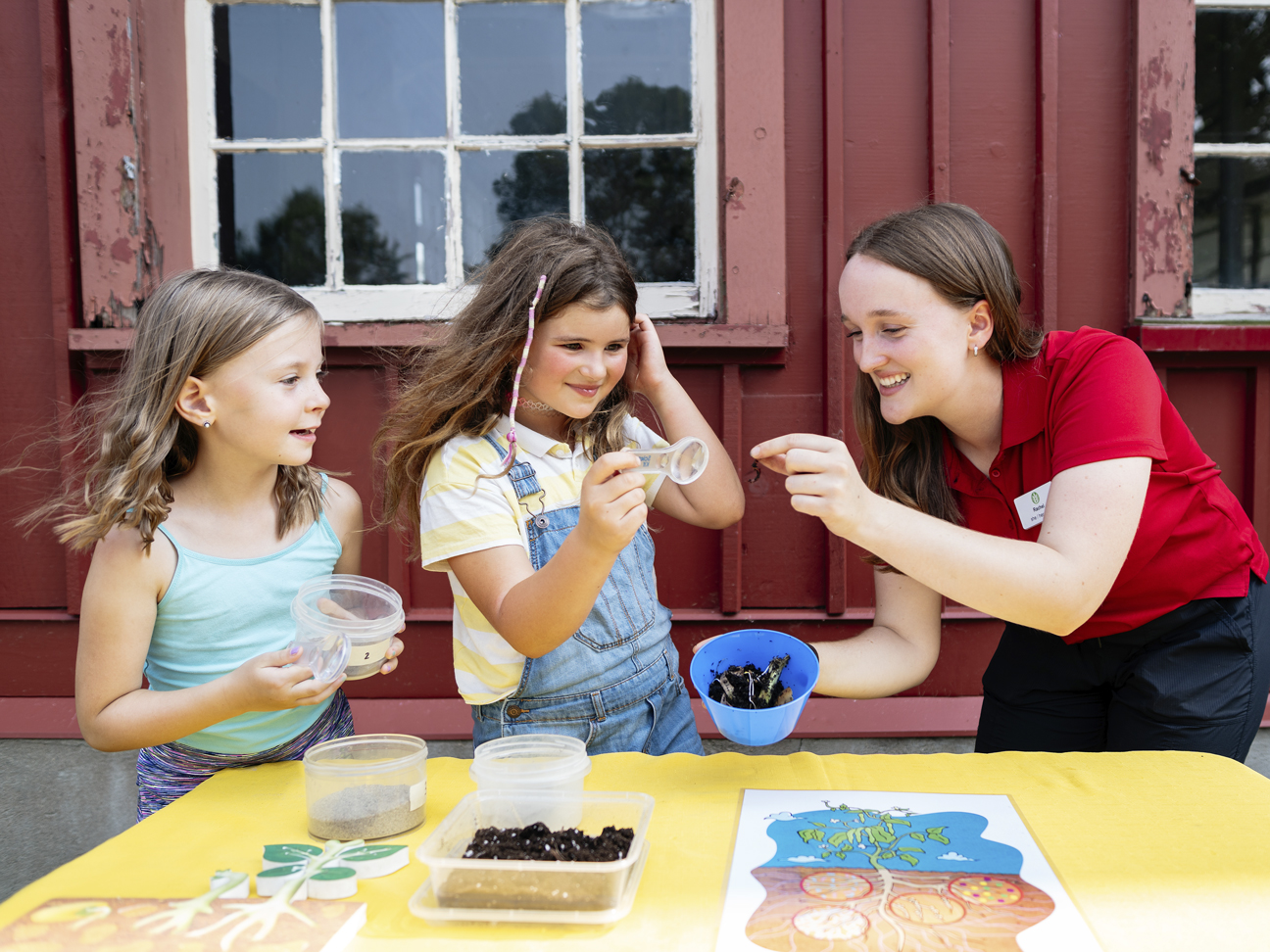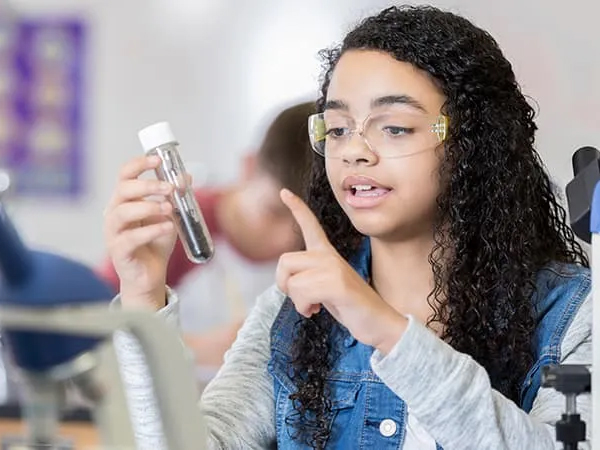Genetics and biotechnology
Grade 11 to 12 (Ontario)
Secondary cycle 2 (Quebec)
$10 per student
150 minutes
Dates offered: September 24, 2025 to June 12, 2026
Max. group size: 29
While meeting our dairy cows up close and personal, students learn about how genetics and biotechnology are applied on our dairy farm. By classifying our cows, the students learn how selective breeding and reproductive technologies can improve the next generation of the museum’s herd.
Through hands-on, activity-based challenges, students apply classroom knowledge of heredity and genomics to real-world scenarios on the farm. This interactive experience encourages teamwork and problem-solving as they explore the role of genetics in modern farming.
Make a reservation request
Lesson plan
Consult this lesson plan for ideas to extend the learning—and the fun!
Curriculum links
Grade 11
- Biology: University preparation
- Scientific investigation skills and career exploration
- Scientific investigation skills
- Career exploration
- Genetic processes
- Developing skills of investigation and communication
- Understanding basic concepts
- Scientific investigation skills and career exploration
- Biology: College preparation
- Scientific investigation skills and career exploration
- Scientific investigation skills
- Career exploration
- Genetics
- Developing skills of investigation and communication
- Understanding basic concepts
- Scientific investigation skills and career exploration
Grade 12
- Biology: University preparation
- Scientific investigation skills and career exploration
- Career exploration
- Molecular genetics
- Developing skills of investigation and communication
- Understanding basic concepts
- Scientific investigation skills and career exploration
- Science: University/College preparation
- Scientific investigation skills and career exploration
- Career exploration
- Biotechnology
- Developing skills of investigation and communication
- Understanding basic concepts
- Scientific investigation skills and career exploration
Secondary cycle 2
- Science and technology
- The living world
- Diversity of life forms
- Genetics
- Survival of species
- Reproduction
- Cell Division
- Diversity of life forms
- The living world
- The technological world
- Biotechnology
- Processes
- Biotechnology
Fees
$10 per student, up to a maximum of 29 students. Please note a minimum fee of $150 applies.
*Program includes free admission for the teacher as well as up to a maximum of 7 other adults. Please note that there is a mandatory minimum ratio of 1 adult for every 10 students. These requirements do not apply to groups with students who have special needs.
Complimentary or discounted admission, as well as passes and memberships are not applicable to group visits.
Reservations
Booking requests can be made through the school programs reservation request form.
You can also connect directly with our customer engagement team:
Email: [email protected]
Phone: 613-991-3053 or 1-866-442-4416
You may also be interested in

Field trip planning tips
Make the most of your field trip to the museum with these planning tips.

AgVenture: Soil science
- Grade 9 – Grade 11
- Secondary cycle 2
In this hands-on program, students measure the levels of various soil nutrients and learn how farmers use this information to increase the sustainability of their farm.

Genetics and dairy cows
Witness how genetics can be applied in real life! Through various activities, students learn how dairy farmers can improve the genetic make-up of their herd.